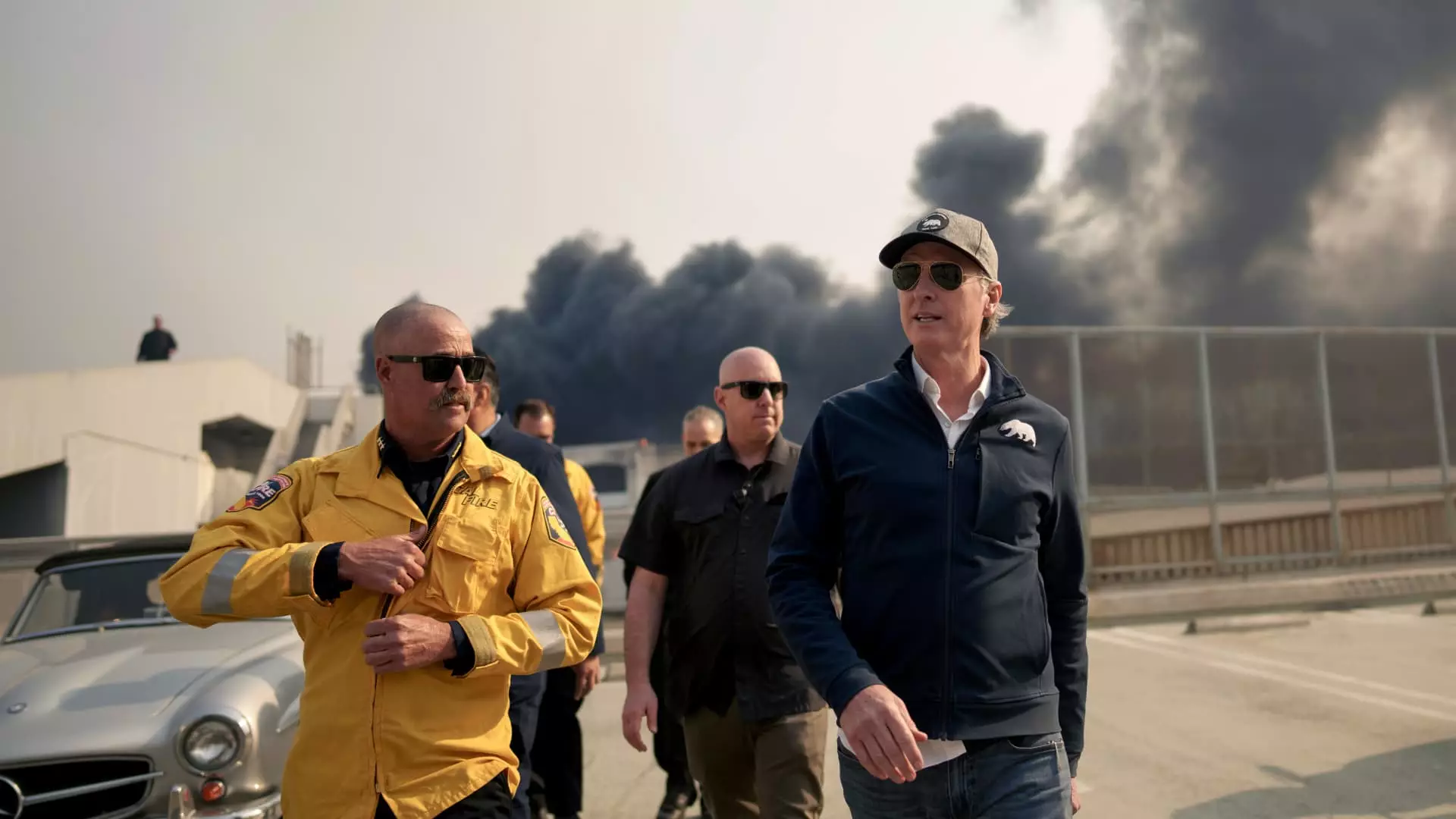California’s wildfire season has become a recurring nightmare for residents and officials alike, exacerbated by a politicized climate where responses can often do as much damage as the flames themselves. The recent outbursts from President-elect Donald Trump toward California Governor Gavin Newsom’s leadership during the crisis exemplify this troubling intersection of environmental disaster and political theater. As Trump brandishes accusations and misinformation against state officials, the urgency of the wildfires is eclipsed by a relentless cycle of blame that serves neither the state nor its people.
The wildfires engulfing California, particularly around the Los Angeles area, have led to dire humanitarian and environmental consequences, with at least 16 lives lost. With flames sprawling into suburban territories and the threat of devastation looming larger each day, the government’s response must be prompt and effective. However, at the height of this disaster, political leaders struggle to focus on solution-oriented dialogue when misinformation is proliferated by influential figures like Trump.
Trump recently leveraged his platform to criticize Newsom and other state leaders, laying the blame for the fire’s devastation on their alleged failures surrounding water management. Posts on Trump’s social media revealed an attempt to frame the situation misleadingly, accusing Newsom of blocking water flow initiatives which he claimed were directly tied to the wildfires. Such unfounded narrative constructs exemplify a regrettable trend in American politics—where the complexities of environmental policy are sacrificed at the altar of partisan attacks.
In a carefully orchestrated response, Newsom pushed back against Trump’s incendiary remarks, emphasizing that they were misinformed and detracted from the pressing need for cooperation and understanding. He characterized Trump’s claims about the state’s water management policies—particularly the focus on endangered species like the delta smelt—as unfounded and indicative of a broader misunderstanding of California’s intricate water policy. This reflects a troubling reality: when misinformation governs public discourse, it can undermine factual analysis and divert attention from genuine solutions to ongoing emergencies.
Newsom’s efforts to invite Trump to California, alongside calls to acknowledge the sacrifices of firefighters battling the blazes, signal a desperate plea for a unified front amid chaos. However, the governor’s concerns about the implications of Trump potentially withholding federal aid due to personal grievances highlights the precarious balance between governance and emergent political maneuvering.
As the wildfires rage, the repercussions of political animosity stretch beyond immediate damage control. Newsom’s recollection of Trump’s past tendencies to withhold disaster aid from states led by opposing party leaders paints a grim picture for California’s future. The specter of delayed federal support not only exacerbates the fallout from natural disasters but also manipulates the very fabric of federal-state relationships in times of urgent need.
This relationship dynamic raises essential questions about accountability when elected officials prioritize personal politics over civic responsibility. As wildfires continue to sweep through the landscape, it is evident that a collaborative spirit is necessary—yet it is challenged by such publicly displayed discord.
In these critical moments, the call is clear: American leaders must rise above pettiness and address the growing climate crisis with the seriousness it demands. Rather than entangling wildfire response in the turmoil of political rivalry, effective disaster management must take precedence. Consensus building, factual dialogue, and genuine acts of solidarity can pave the way toward recovery, yet these efforts require more than mere rhetoric.
As California faces a wildfire crisis intensified by political posturing, it yearns for leaders willing to transcend personal interests for the common good. The devastation wrought by wildfires is not just a testament to environmental challenges; it also unveils the urgent need for a more cohesive and compassionate political landscape. Without such a shift, we risk not only the loss of our environments but also the fracturing of our communities in the face of disasters beyond our control.


Leave a Reply